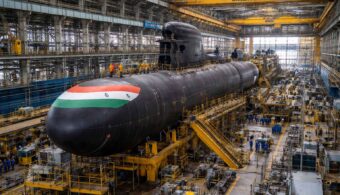German Chancellor Friedrich Merz on Tuesday, 9 September, inaugurated the Munich Motor Show, pledging strong support for Germany’s auto industry at a time when Europe’s largest industrial sector is under mounting pressure.
Merz underlined that the industry is crucial for Germany’s economic prosperity and warned of rising competition from China and the United States. He announced plans to hold a summit with carmakers, suppliers, and stakeholders within the next four to six weeks to discuss solutions to tariff barriers, weak European demand, and the electric transition.
“Global competition in the automotive sector, not only for electric vehicles, is intensifying. This competition is particularly strong from China and the U.S.,” Merz said at the IAA Mobility 2025 trade fair.
He added that Germany should not limit itself to a single technological path but instead “encourage competition between the best ideas and technologies,” with industrial battery production needing rapid expansion to meet surging EV demand.
Munich Motor Show: EVs Take Centre Stage
Europe’s automakers, including Volkswagen, BMW, Renault and Stellantis, are contending with elevated U.S. import tariffs of 27.5% and a price war triggered by Chinese manufacturers. Negotiations to lower tariffs remain stalled, while demand in Europe remains sluggish.
At Munich, European brands showcased a new wave of EVs and affordable models aimed at countering foreign rivals and restoring competitiveness.
Volkswagen unveiled the ID.CROSS concept, a compact electric SUV slated for a world premiere around summer 2026, with an estimated price range of €28,000–€30,000—reflecting a strategic push toward more affordable EVs.
Meanwhile, Mercedes-Benz introduced its next-generation GLC EV built on the new MB.EA platform. It boasts advanced features like an 800-volt architecture, a high-capacity 94 kWh battery, and fast charging. The range for the AWD variant (GLC 400 4MATIC) is claimed to exceed 700 km (WLTP)
Volkswagen Turns to India for Small EVs
Volkswagen Group CEO Oliver Blume confirmed on September 7 that India is being considered as a launch market for the company’s new small electric car family. The line-up — including the ID. CROSS Concept, Skoda’s Epiq SUV, the Volkswagen ID. Polo and CUPRA Raval — debuted at the Munich show.
Calling India a “fantastic market, now the third biggest in the world,” Blume said the company is exploring partnerships to introduce small EVs in the country. He added that India’s recent Goods and Services Tax (GST) cuts make the market “much more attractive” for global automakers.
Porsche and Mercedes Roll Out New Models
Porsche unveiled the 911 Turbo S Hybrid, its most powerful Turbo S yet, producing 711 hp. With both coupe and cabriolet versions on display, the model has already been listed on Porsche India’s website, indicating a launch in 2026.
Mercedes-Benz introduced its all-new GLC EV 2026, built on the MB.EA platform. Two variants were announced: the GLC 300+ and the GLC 400 4MATIC. Equipped with a 94 kWh battery and ultra-fast charging capabilities, the higher-end version promises a WLTP range of over 700 km. Mercedes confirmed a global rollout in 2026, with India expected to follow soon after.
India Emerges as Strategic Growth Market
With India now the world’s third-largest automobile market, German automakers are increasingly looking eastward for growth opportunities. GST reforms, government incentives and rising EV adoption have made India an attractive destination for both mass-market electric models and premium luxury vehicles.
For Berlin, safeguarding its auto industry at home goes hand in hand with enabling it abroad. As Merz stressed in Munich, Germany must “back the best technologies, ideas and markets” — and India is firmly part of that equation.



